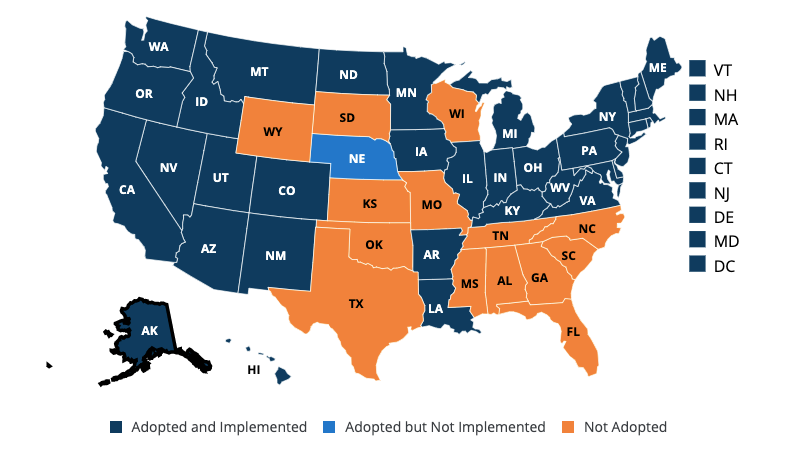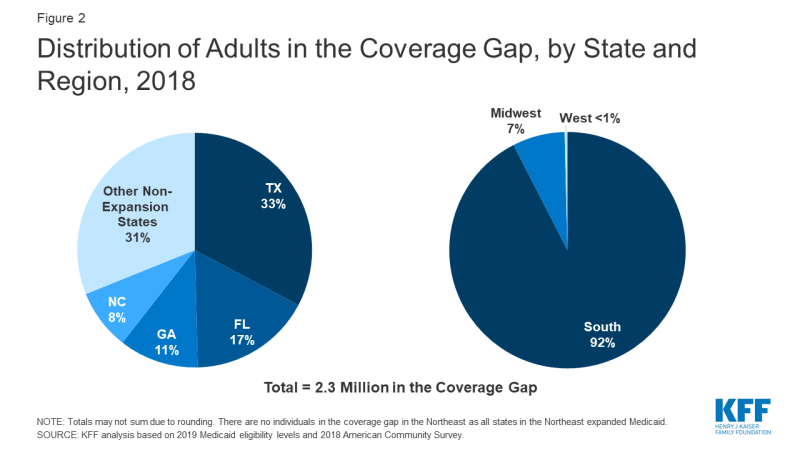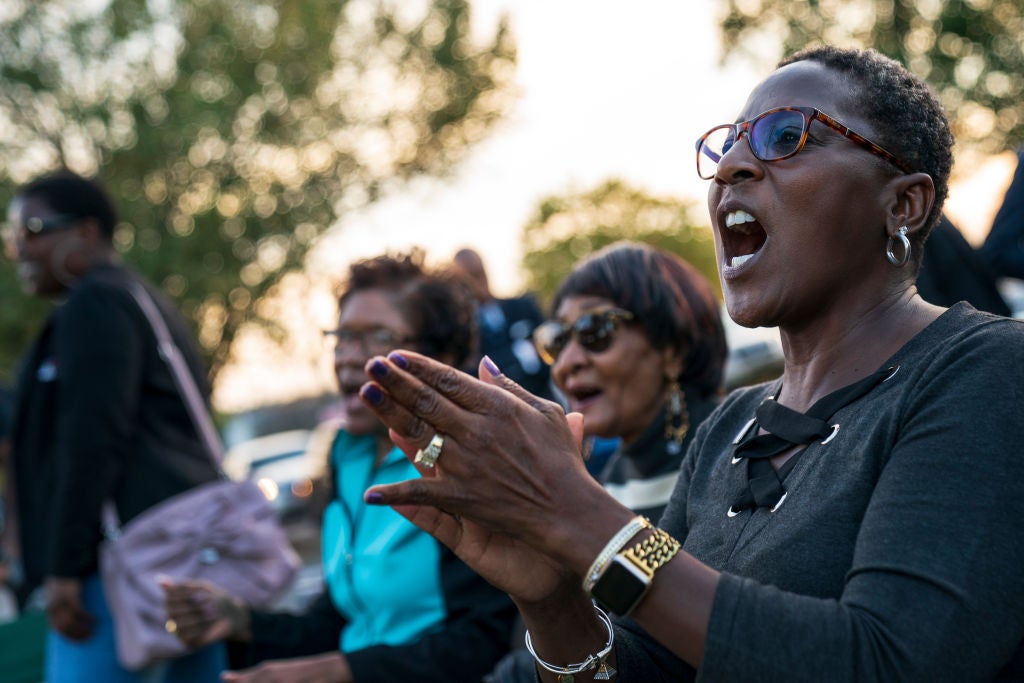Just weeks ago, Black Southerners were the talk of the nation. What issues we support. What candidates were courting us for our vote in the Democratic primary. We went from constantly ignored and under-resourced to the focus of national conversations. We went from unimportant to shifting what was possible in regards to who would become the next president of the United States. We went from being abandoned and, in some cases, mocked, to issues that impact us being front and center in national debates and polls.
But now, merely days later, despite the constant realities of Black Southerners, especially those of us in rural communities, we’re back to business as usual. Despite the disproportionate and disastrous impact of state sanctioned violence, a discriminatory health care system, and a trickle-down-til-it-stops economic infrastructure, Black Southerners are once again in this nation’s peripheral vision—even as the COVID-19 (coronavirus) global pandemic threatens to devastate our communities. Make no mistake, this reality could mean a death sentence for far too many of our people.
Let me explain how we know this to be true.

On March 13, 2020, the Kaiser Family Foundation (KFF) published the Status of State Medicaid Expansion Decisions. In the comprehensive data shared, KFF illustrates that the U.S. South—the largest geographic region in the nation, a region that already has higher numbers of cash-poor adults without health insurance in comparison with other regions—represents the majority of states that did not expand Medicaid (9 out of 14).

KFF goes on to explain that the geographic disparities in health coverage aren’t just geographic; they also disproportionately impact people of color, specifically Black people in the South—the region that the highest concentration of Black people in the United States call home:
“Most people in the coverage gap live in the South, leading state decisions about Medicaid expansion to exacerbate geographic disparities in health coverage. In addition, because several states that have not expanded Medicaid have large populations of people of color, state decisions not to expand their programs disproportionately affect people of color, particularly Black Americans. As a result, state decisions about whether to expand Medicaid have implications for efforts to address disparities in health coverage, access, and outcomes among people of color.”
If that weren’t enough, those states’ decisions activate a circular white supremacist, capitalist violence— refusal to expand Medicaid leads to fewer cash poor Black southerners seeking treatment, which leads to fewer rural hospitals being able to remain open, which leads to even fewer of our people being able to seek treatment.
In 2019, John Commins reported that, “Since 2005, 162 rural hospitals have shuttered, with 60% of the closures occurring in Southern states that did not expand Medicaid enrollment.” Writing for Forbes’ Magazine, Clary Estes reported that as of February 24th, 2020, “one in four rural hospitals are at risk of closure and the problem is getting worse.”
All of this was true on Super Tuesday and continues to be true today as we watch the swift march of COVID-19 across our region. As of this writing, Mississippi, “the 35th largest state by population — ranks 12th among states for novel coronavirus cases per 100,000 residents,” Mississippi Today reports. That’s 377 people diagnosed, “11 cases for every 100,000 residents.” Two deaths have been reported. In Louisiana to date, there are 1,388 cases and 46 deaths reported, with 675 cases reported in New Orleans alone. In Alabama, there have been 283 confirmed COVID-19 cases. Forty-five people have been hospitalized at the University of Alabama at Birmingham Medical Center with the novel coronavirus; 18 of them are on ventilators. In Tennessee, to date, there are 777 confirmed cases and two people have died. Florida has over 1,200 cases. There are 1,247 confirmed cases in Georgia; 504 in North Carolina; and 342 cases in South Carolina.
None of these states, with the exception of Louisiana, elected to expand Medicaid. This means that these numbers—especially in states like Mississippi where no shelter-in-place orders have been given, because according to Gov. Tate Reeves, “Mississippi’s never going to be China”—will spike, and spike quickly.
With these reckless actions, it is us, our communities around the nation and, especially, in the rural South, which will suffer the most. Inevitably, when the United States sneezes, Black America catches a cold.
And this is no ordinary sneeze and no ordinary cold.
We—who were already neglected by states who chose profit and partisan politics over the health and well-being of our communities, who are disproportionately impacted by poverty, white supremacist violence, health disparities and more—are seeing less access to emergency care, while the few facilities that remain are becoming the primary source of care for our people. We’re seeing health care providers leave communities because of the closure of rural hospitals, gaps in specialty care expanding, job loss, and so much more, as the need for services increases beyond our ability to provide them.
Elders and already sick folks are at risk down South. Is the nation paying attention now?
The virus will continue to spread, impacting communities in the Blackbelt South, like those in Cancer Alley or in Central Appalachia with a high concentration of health disparities—both in regards to the impact of illnesses and the lack of access to affordable healthcare insurance and adequate facilities. We know that if people in New York and California are struggling to get tested, to have enough masks and gloves and the like to properly keep healthcare staff safe, that we will probably be in a similar or even worse predicament as the virus spreads here. We, who live in “right to work” states, who won’t have paid leave to stay home, or the ability to work remotely when shelter-in-place and lockdown orders come from our municipal governments, are at increased risk. Those of us who needed public schools to stay open to ensure our kids were fed at least two meals a day—while we focus on making money to support our elders and children, biological and chosen families—are in deep trouble.
We know that much of this reality exists because of policy decisions made by the white rightwing/conservative and neoliberal elected officials that take advantage of our disillusionment and voter suppression tactics to stay in office. We know that greed and abuse of power, the ability of some to harm the majority of us for the sake of consolidating their wealth and power, is a clear and present danger. We know that much of this reality exists because liberals, progressives, and left forces in this country only see the need to center the Black South when the camera is in their hands, pointed at us as the problem or a convenient geography to amplify as it’s convenient for them.
But there’s good news to this story, too: the Southern Freedom Movement is alive and well. Communities have been fighting for healthcare for all and to fully fund medical facilities across our region. Mutual aid and community defense are old practices here. Our abilities to practice social solidarity despite the realities of the political present exist because of our strong relationships and commitments to collective liberation. Southern grassroots organizations are continuing to step up to the plate to meet the needs of our communities. The Southern Movement Assembly has trained and is continuing to train hundreds of folks in preparation for the Southern Spring–90 days of actions to resist what harms us and build what we’ve always deserved.
Organizations like Black Voters Matter and Crescent City Media Group are fighting voter suppression, getting folks educated and to the polls, and making sure our people get counted in the census. Southern members of The Movement for Black Lives are raising demands to ensure that our people are taken care of and given what they need and deserved to survive this moment and thrive in our homeplaces. Organizations like the Gulf Coast Center for Law and Policy and the National Black Food Justice Alliance are ensuring that our people are protected during moments of manmade climate disasters and that the people who steward and grow our food are organized and taken care of.
Organizations like Women Watch Afrika are ensuring that the voices of immigrants and refugees are centered and that all forms of discrimination against women are dismantled. Organizations like SisterSong are fighting to ensure that our ability to exercise our human right to reproductive justice and bodily autonomy aren’t thwarted by state interventions. Organizations like Law for Black Lives, the Movement Law Lab, and Law at the Margins are working to prepare the next generation of movement lawyers that will serve and protect social movements and grassroots communities.
Organizations like The Highlander Research & Education Center is show up for social movements as it has since 1932, bringing people together across difference to learn together, share culture, and to take their new knowledge and do something with it to build a better world through the creation of virtual gatherings similar to what happens on the 186 acre space.
So, will the South be disproportionately impacted by this virus? Very likely. But there is hope, abundantly. The even better question is: will you be a part of the solution? Will you amplify the voices of the Southern Freedom Movement, and be intentional about pointing the camera you’re holding toward Southern solutions?
Because, indeed, “as goes the South, so goes the nation” isn’t an opinion; it’s a fundamental fact.
*****
Ash-Lee Woodard Henderson is a 34 year old, Affrilachian (Black Appalachian), working class woman, born and raised in Southeast Tennessee. Ash-Lee is the first black woman Executive Director of the Highlander Research & Education Center, a social justice leadership training school and cultural center founded in 1932. Ash-Lee is a long-time activist working against environmental racism in central and southern Appalachia, and has fought for workers rights, racial justice, women and LGBTQUIA+ rights, reproductive justice, international human rights, and led-intergenerational social movements across the South. She serves on the governance council of the Southern Movement Assembly and is a nationally recognized leader in the Movement for Black Lives.
*****
ESSENCE is committed to bringing our audience the latest facts about COVID-19 (coronavirus). Our content team is closely monitoring the developing details surrounding the virus via official sources and health care experts, including the World Health Organization (WHO), the Centers for Disease Control and Prevention (CDC) and the Occupational Safety and Health Administration (OSHA). Please continue to refresh ESSENCE’s informational hub for updates on COVID-19, as well as for tips on taking care of yourselves, your families and your communities.
